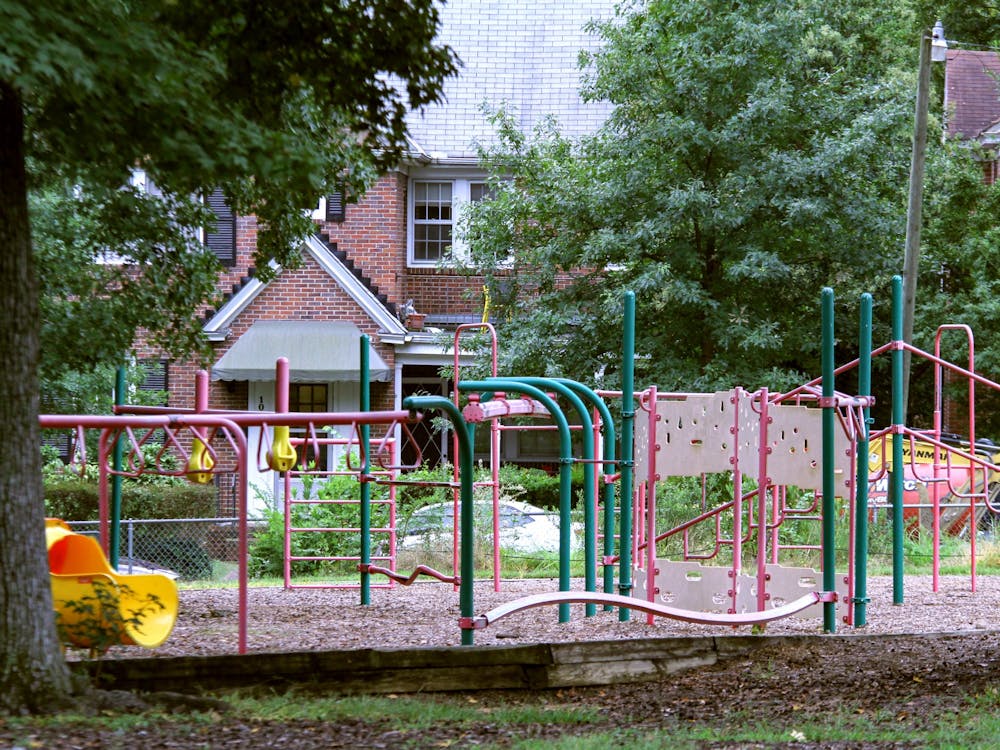Duke and North Carolina Central University are collaborating on a project aimed at strengthening connections between institutions of higher education and public schools in Durham.
At the heart of the collaboration is a Bass Connections project launched in 2019. The group of students, faculty and staff focuses on a specific form of community schools called university-assisted community schools, examining the role that higher-education institutions play in supporting local public schools.
“About three years ago, our local teachers union here in Durham became aware of a school model that’s been around for the last 100 years called community schools,” said Alec Greenwald, one of the team leads and the Duke Academic Advising Center’s director of academic engagement for global and civic opportunities.
The model promotes partnerships between school and community stakeholders, ultimately making public schools hubs of mutual support, partnerships and engagement.
“It incorporates things like wrap-around services, trauma-informed discipline policies, culturally relevant curriculum and horizontal leadership mechanisms,” Greenwald said. “Communities schools were going to happen without Duke and NCCU, but we were interested in how we could replicate their models, and Bass Connections was the vehicle.”
One of the group’s first steps was to learn how community school models work. NCCU and Duke students visited New Mexico State University, Milwaukee Public Schools Community Schools Partnership, United Community Schools in New York City, the University of Central Florida and the University of Pennsylvania.
Jasmine Benner, a junior at NCCU studying public health education, visited public schools in Milwaukee.
“I’m very big on mental health—that’s one of my interest areas for research,” Benner said. “They had in-school psychologists and the way that they dealt with behavioral issues for children was instead of automatically suspending them or sending them to detention, they had a classroom where they had a social worker who deescalated the situation and talked with them about how they’re feeling.”
Alex Chao, a Duke junior, visited the University of Pennsylvania.
“They had these courses called ABCs, Academically Based Community Service, which are like project-based learning,” he said. “What they do is go out into the public schools, they try to find an issue and then they build a course around that issue. For example, there was a school that wanted a better energy source, so they built an entire course around that. Students were able to work with community partners from the very beginning and solve that issue throughout the course.”
After learning how community schools and university partnerships work in other settings, the team returned to Durham. They completed a needs assessment through interviews with students and teachers within the Durham Public Schools system. A primary finding was the need for more preparation for undergraduate students entering public schools as tutors.
The team also reported a need for undergraduate students to gain more cultural competency and a better understanding of Durham’s historical, racial and socioeconomic context.
“Racism and poverty have landed on the doorsteps of public schools to fix. Folks often neglect to look at the systemic issues that put students and families and communities in these places, but yet it's the teachers’ job to solve these problems,” Greenwald said.
The Bass Connections team looks to community school models as a way to build greater support within public schools. As its members continue their research, they already consider the strong connection established between NCCU and Duke a victory.
“We all care about education a lot, and it gave us all a common thing to get excited about,” Chao said.
Get The Chronicle straight to your inbox
Signup for our weekly newsletter. Cancel at any time.

